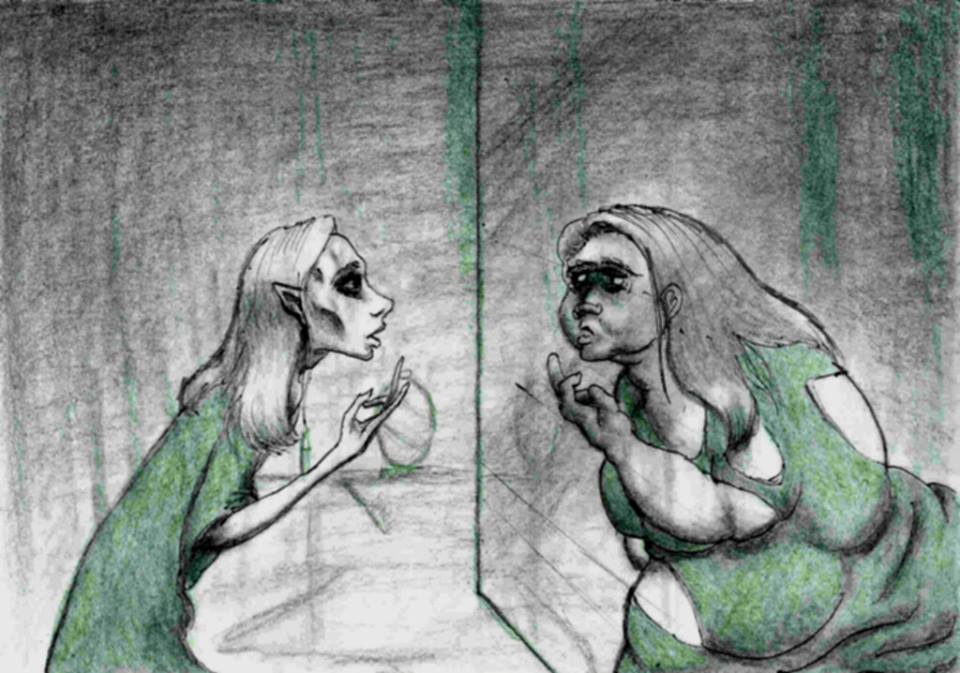By Anonymous
In recent years eating disorders have gained traction in the media. People are finally beginning to talk about diseases like anorexia nervosa and bulimia. The issue now, however, is that these conditions are so often downplayed as “white girl problems” attributed to teenagers who simply didn’t feel “pretty enough”. But the truth is, eating disorder sufferers span across gender, race, and age to encompass a huge range of people. A dialogue needs to open up whereby we begin to look at the underlying issues of why this condition is so prevalent in our society, for truly it is reaching a crisis point with one person dying every 62 minutes in direct relation to an eating disorder (1). I want to share with you my story, and also the stories of fellow UCR students, to educate those among you who may still consider this a schoolgirl issue, and for others within our community who may be suffering, to help you appreciate that you are not alone.
My specific eating disorder is called anorexia in conjunction with binge eating and purging. Many people with eating disorders are not restricted to a singular abusive mechanism. It affects my life on a social, emotional, and physical level. I use food to numb pain or suppress emotion. Food can help to numb the feelings I am trying to suppress briefly, but after the blood sugar spike of binging, they come rushing back mingled with the shame of the binge itself. I suffer from mood swings, grumpiness, extreme sadness, and overall self-loathing. It sees me locking myself away and feeling guilt over missing out on life. Social events can be torture, as I am constantly thinking about eating. There is no pause to it, no stop button.

I am embarrassed to eat even small amounts of food around people, but if there is food around me, the desire to binge is painfully peaked. Imagine a life where simply going out to dinner with your family, or to a friend’s birthday party, becomes a strenuous mental task. I am constantly criticizing myself, and telling myself that I am not good enough. Being underweight helps give me back power over these emotions. And I fear they will return if I put weight back on. Anorexia is overwhelmingly draining, you feel endlessly tired no matter how much you sleep, and the combination with binging and purging means my body is under constant stress. Eating disorders can affect every aspect of your body, from weakening your heart to making your teeth fall out.
Though the risk to health may be the same for each individual, the reasons behind the disorder vary drastically from person to person. Every single person has their own story. I spoke with fellow UCR students to gain insight into how they live with these debilitating conditions. One student reflects, “I suffer from bulimia and self-harm, I cut. For me both are a form of pleasure and punishment. The obvious immediate physical reactions are a form of high that acts as a release from any number of emotions, a bizarre coping mechanism. But they are also a direct punishment for having brought those emotions upon myself. Inadequacy and a lack of self-control, I believe, are at the root of the problem. I feel unable to get where I want in life, feel trapped by my own incompetence, lack of drive, lack of talent, lack of anything you can think of, really. It sounds and feels pathetic, but once you have lost your self-respect it is very hard to gain it back.
It’s a vicious cycle, you do things you’re not proud of because you don’t believe you’re any better than those actions. You try to run away from yourself and a lot of the time you can, you can distract yourself from the fact you’re not the person you want to be. You can even convince others. People may see you as a person who is sociable, studious, who doesn’t appear to be suffering in any way. But in truth, you analyze everything you do and can’t hide from the fact that you don’t respect yourself. And so, when you are alone and can no longer hide from yourself you cut, or binge to punish yourself, but also so the pleasure of it can continue to distract you from your emotions. It’s a powerful dichotomy that’s often confusing.”
Another student also spoke out about their feelings, “I suffer from bulimia. It is hard, I think, for people to understand why they suffer from these complicated mental conditions, and I have spent a lot of time trying to come to terms with my own illness. I believe for me it is linked to control and a desire to people please, I want to control how people react to me. I was raised in a way that I believe is reflected in modern western thought tradition. There is now an engrained social mindset that in my opinion is contributing massively to the pervading prevalence of eating disorders. If a friend asks me if her bum looks big in her jeans, I am supposed to say, “no, are you crazy? Of course not!”
This is what we have all been taught is the appropriate reaction. This perpetuates the idea that if her bum did look big that she would be worth less. A need for personal perfection has been fostered in us. Instead of saying that yes, her bum does looks big but no it doesn’t matter, we insinuate that our defects somehow make us less desirable or important. It makes us believe that we have to work towards but are not inherently deserving of unconditional self-worth. This idea was most certainly reinforced in my home life growing up. Now, however, that I recognize it, I refuse to buy into the idea. I am surrounding myself with people who appreciate that I am not perfect, but am grateful for me anyway. Looking to the future, I have a confidence I never had before about overcoming my bulimia.”
Whatever the reasoning behind a person’s eating disorder, I believe that with treatment there is hope for them to cope it. Personally, I have reached out for professional help, but there are many who try to deal with eating disorders alone, and to those I advise not to suffer in silence, though I appreciate the bravery it takes to speak out. Remember, you have many options available to you. If you do not want to open up to a friend or family member consider visiting the UCR student counselor Karen Van den Berg ([email protected]).
- Hudson, J. I., Hiripi, E., Pope, H. G., & Kessler, R. C. (2007). The prevalence and correlates of eating disorders in the national comorbidity survey replication. Biological Psychiatry, 61(3), 348–358.
Anonymous

